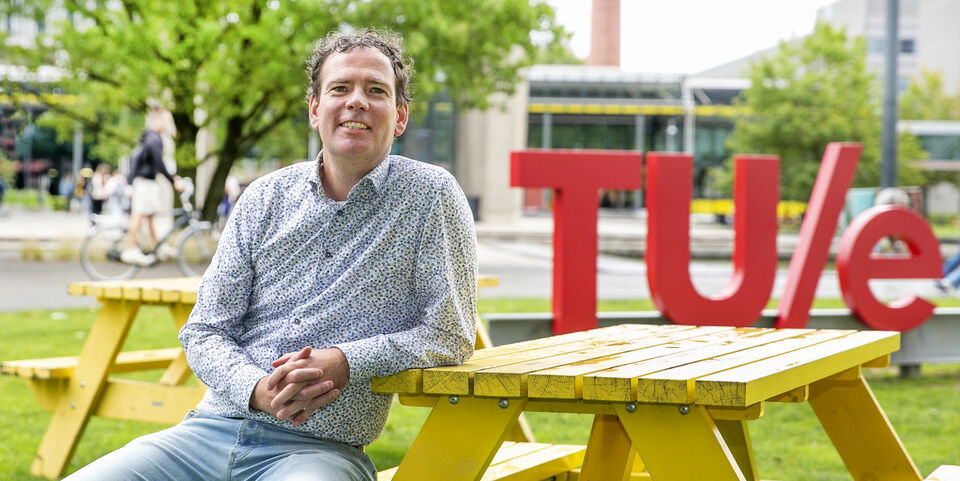There was already an ombudsperson for TU/e staff. In order to promote social safety and the study climate among students as well, a Student Ombudsperson has been in place since September. Roel Notten (43) works as a “student ombuds” for both TU/e and Utrecht University and travels back and forth between the two university cities to help students. “It feels very special to connect “my” two places like this,” he tells Cursor. “I studied Sociology and International Relations in Utrecht - and have been living there ever since - but I grew up in Waalre. As an 8-year-old kid I attended my father’s PhD ceremony at TU/e, where he went on to become a professor of battery technology (Peter Notten, ed.). There are lots of memories here.” He cares deeply about students, and although his position is aimed at resolving complaints, he also hopes to contribute to a culture in which “we don’t just train engineers in subject matter, but in which students and staff also develop a social toolbox together.”
What issues can the Student Ombudsperson help you with?
“I can be contacted for a wide range of complaints that, to a greater or lesser extent, hinder your studies. Think, for example, of academic pressure, a dispute about an exam, but also, above all, undesirable behavior.” As to which steps to take when you have a complaint, Notten refers to the social safety support guide for students. “The first thing you should do is try to resolve your complaint directly with the parties involved. But sometimes that doesn’t work out, or you only realize later that a certain situation was unpleasant or that you’re facing study delay. If the moment has passed but you’re still experiencing frustrations, you can turn to the so-called “first-line support,” your academic advisor, tutor or confidential counsellor. They can mediate but also refer you to the Student Ombudsperson.”
What can the Student Ombudsperson do for you?
“If you, as a student, have filed a complaint, but feel that you’re not being seen or treated fairly, I can offer assistance. As Student Ombudsperson, I have various responsibilities. I often provide advice on the student’s situation and can inform about rights and obligations. Every case is different and the outcomes vary greatly. Sometimes a single conversation where you can tell your story again is sufficient, other times a longer mediation process is necessary. I work on individual cases, but I can also start an investigation when I notice certain patterns.”
So in addition to the academic advisor, tutor and confidential counsellor, there is now also a Student Ombudsperson. What exactly are the differences between these positions?
"In case of undesirable behavior or a complaint, you can turn to your academic advisor but also to a confidential counsellor. They are on the student’s side, and try to help you as best they can during the process. At TU/e, a lot of focus is put on developing positions involving confidentiality in the first line. One way of doing this is by training more students as Confidential Contact Persons. Ultimately, the preferred outcome is for problems to be solved on a peer-to-peer level, within the study program and with the people directly involved. The main difference between my role and that of a confidential counsellor is that I am completely impartial and independent. Therefore, I can provide second-line support to both parties in the form of advice and mediation when necessary.”
“In a community, there will inevitably be issues or things that could be improved. Fortunately, a movement has been initiated to address these issues. My position is focused on resolving complaints, but what I ultimately hope to contribute to as Student Ombudsperson is a positive trend towards preventing undesirable behavior. I want to work together to create a community here at TU/e where there is room for mutual understanding. It is very clear to me that everyone is working hard to develop high-quality technological knowledge, but I have noticed in conversations that there is still some room for improvement when it comes to people’s empathy. A good starting point is reflecting on one’s own behavior and sometimes just saying “sorry”. It would be great if young people leave the university not just with a diploma, but also as strong individuals who have developed the necessary socio-emotional skills. That is very important; today’s students are the future of our society.”



Discussion